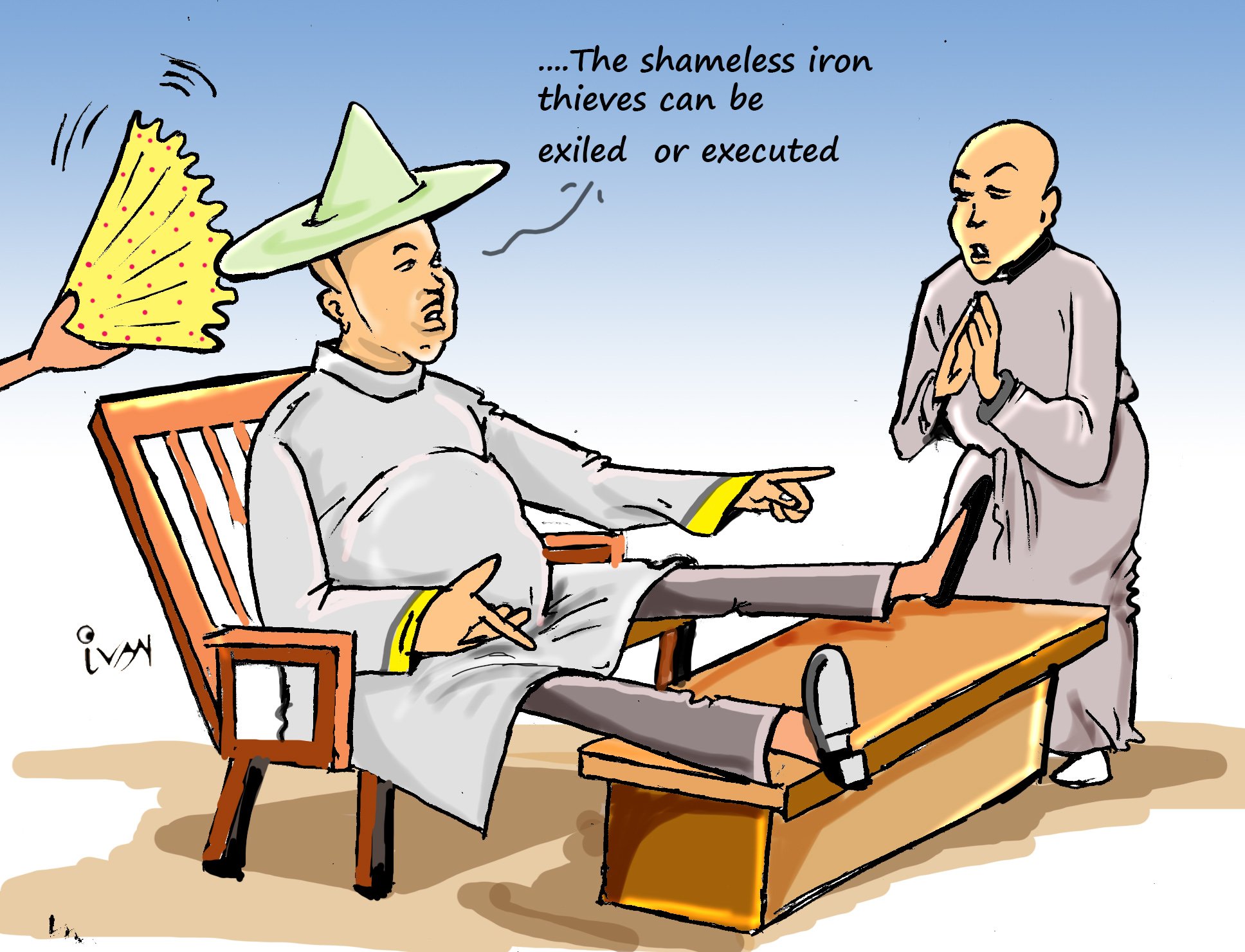Prime
Satire: How Korea’s Great King Sejong handled iron thieves

There is a reason King Sejong is considered the greatest monarch in Korean history (Joseon era – 1392-1910). His epithet, “the Great King” was nothing compared to his deeds like the creation of the Korean alphabet (hangul) amid so much opposition from his own scholars.
However, I don’t teach history – I just borrow from it here and there. Like now.
From around 1439, Sejong became increasingly ill and starting from 1442, Crown Prince Yi Hyang (future King Munjong), started acting as the ruler.
Sejong devoted his remaining time to tutoring Yi. Of course, there were the crossings of borders to pay respects to the Great Ming (China). This also allowed Yi to learn diplomacy.
But there was no Twitter or some funny eunuch wearing striped orange tees.
One of the endearing lessons Sejong imparted in the Crown Prince was when he found out that some of the court officials (ministers) were involved in economic sabotage.
The ministers had misappropriated iron, a vital mineral used in forging steel weapons and also making coins for trade.
The young Yi was only eager to appease his father and within days he had arrested three ministers. An ailing Sejong decided to attend the hearings to see how his son would handle the matter.
The first suspect turned up for interrogation in full court robes. He did not show any remorse or emotions and the angry Crown Prince ordered him locked up in the dungeons.
The second official had a rather clean pate for a Joseon noble. Had it been sunny that day, a Joseon scientist who could see into the future jokes, “we could have tapped for some form of energy from his shiny head”.
The official wore misery on every wrinkle on his body and let the entire Joseon know that he was ailing so bad he could die on his way out of interrogation. He wept too.
The third official grinned the whole while he was being interrogated. Several people who turned up kept wondering if it was the right suspect being charged. Even when the Crown Prince ordered him dumped in the dungeon, he was all smiles.
That evening the Crown Prince called on his ailing father. Over Chrysanthemum tea, the king and the future king went through the cases. To Sejong’s utter anguish, the Crown Prince only saw the guilt in the three ministers.
“The royal relief minister did not show any remorse,” the Crown Prince said. “He showed a disdain to the throne.”
He went on: “Then the deputy finance minister, he made it look like the royal household was responsible for his health situation. He is a thief so he must show some face.
“Finally, that arrogant prick who thinks he comes from the clan of great scholars, he was mocking the throne by grinning all the time.”
King Sejong coughed and cleared the phlegm in his throat for a while. Then he explained the significance of each suspect’s behaviour.
The fella who turned up in official robes instead of the white undergarment prisoners or suspects had to wear, Sejong said, was accusing the Crown Prince of being the guilty one.
“If he is guilty in that robe then he is saying the entire royal court is guilty and that means the throne, too. That one who looked sicker than medicine, he was saying you are responsible for his situation and that the throne will die like he is about to die, and the one who laughed was daring you.”
The Crown Prince asked what to do.
“Do you know why a praying mantis eats the male after mating?” his father asked.
“No.”
“Neither do I. But after getting pregnant, it expects a new life so it is starting afresh, the shameless iron (sheet) thieves can be exiled or executed.”
And so it happened.
Disclaimer: This is a parody column





